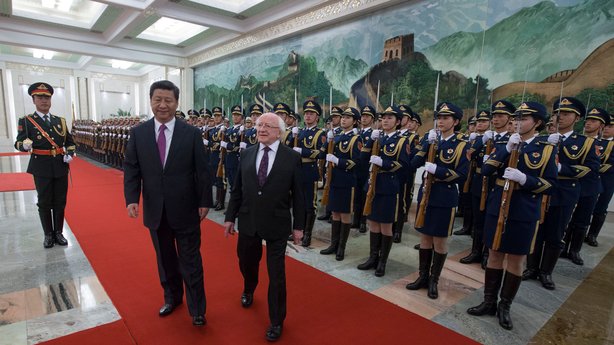now most people say we can win a war with chinafor me i doubt we can even invade there countrythe reason beingfirst there population is 3x of ourswe rank in the 300 to 400 million will theres is in the billions
no u say that suppior military strategy and technolgy can win it
but infact we cant
in ww2 normandy is a perfect example
german soldiers were better equipped and better trained and seen battle
USA had crappy weapons and bad armor and not that good training as to compare to the germans
wave after wave of men broke threw german lines on the beaches
show that even better trained men cant hold of wave of men charging at you
encluding if they got machine guns
now u say missles am i right?
they have missles to
now u fire missles kill couple millions they fire at you kill couple millions
now look who has the population to keep on fighting war
even tho america has better training out numbering a man 4 to 1 there is no way we could over come a force of that magnitude
bec china can keep drafting men there birth rate is way higher then ours
plus out econmy suck theres is rising more countries will take side with china and not come into the war
the reason be china is one of the world biggest trader plus most companies have factories there
that could affect all the worlds econmy
the usa wont use nukes will democrats are in the white house more diplomacy will try to take place
but in a even of a war china numbers and it current economy and technology and education going up china will soon be above america
if you can persuade me that USA can please enter it i would like to hear your arguments
this is for a paper
o yea all u military guy who answer this
yes the navy can hit a target in what 2 or 3 hours but can u while ur battling no it will take longer just to get there
so dont be saying o we can get to this place fast and take that person out
the world’s technolgy is up to date
they have missles to
dont u say we can invade china bec we cant unles u want to lose all the marines. beach invasion is impossible they have enough men to defend there land
sorry for my spelling im really tired
but please enter ur comments i need some counters to my paper




 but the story was about Australia being invaded by forces of a coalition of communist Asian Nations. This in order to bring about equitable distribution of Australia’s natural resources. The invaders felt that Australia had been very, very selfish.
but the story was about Australia being invaded by forces of a coalition of communist Asian Nations. This in order to bring about equitable distribution of Australia’s natural resources. The invaders felt that Australia had been very, very selfish.
 ) and it won’t be an obvious economic or cultural takeover (the US pretty much achieved that unintentionally during and after WWII due to its much more advanced and interesting things) but something more insidious which gradually alters the nation and those who run it, quite possibly by an extension of Chinese (both PRC and ethnic Chinese outside and hostile to PRC) investment in Australia.
) and it won’t be an obvious economic or cultural takeover (the US pretty much achieved that unintentionally during and after WWII due to its much more advanced and interesting things) but something more insidious which gradually alters the nation and those who run it, quite possibly by an extension of Chinese (both PRC and ethnic Chinese outside and hostile to PRC) investment in Australia.